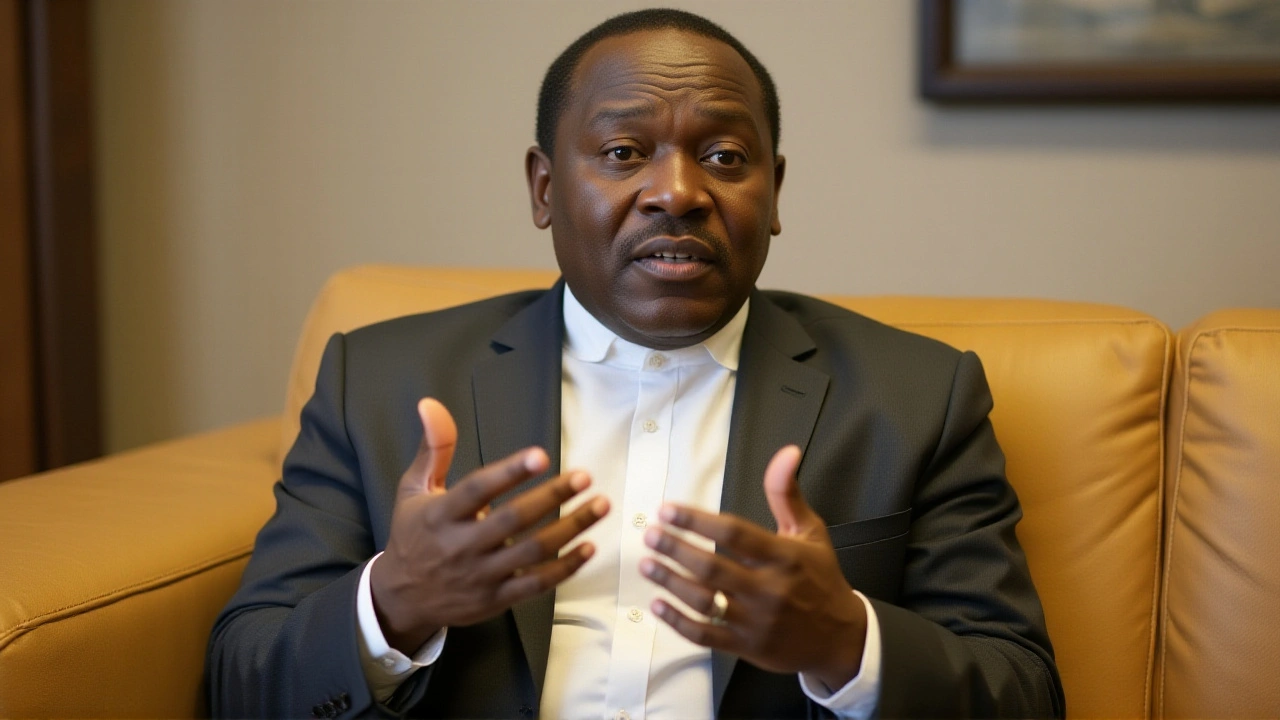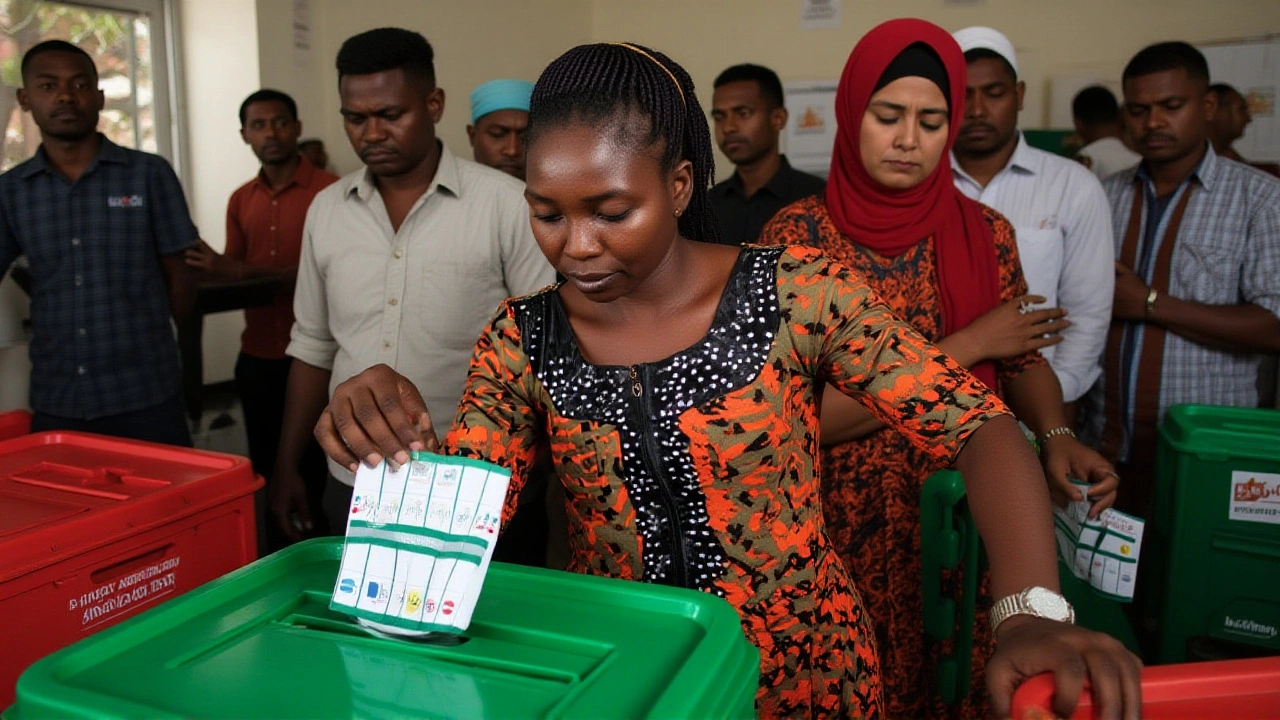When Bola Ahmed Tinubu, the candidate of the All People's Congress (APC), was declared winner of Nigeria’s Feb. 25, 2023 presidential vote, the country’s fragile democratic rhythm hit a discordant note.
Held in a nation of about 220 million people, the election saw just 27 percent of registered voters cast a ballot – roughly 8.8 million votes – a steep drop from the 35 percent turnout in 2019. International observers, including the European Union and the International IDEA, flagged massive logistical failures and a lack of transparency at the Independent National Election Commission (Independent National Election Commission) (INEC). The result, while legally upheld by the Supreme Court of Nigeria, left many questioning whether Nigeria’s democratic institutions are still functional.
Historical Background
Since gaining independence from Britain on Oct. 1, 1960, Nigeria toggled between civilian rule and three decades of military dictatorships. A tentative return to democracy began in 1999, culminating in the historic 2015 transfer of power when Muhammadu Buhari won the presidency under the APC banner. Buhari’s two terms, though initially marketed as a "change" agenda, left many Nigerians disillusioned by persistent insecurity, corruption, and stagnant growth.
Analysts at Chatham House warned in a June 2022 report that the country’s democratic fabric was already fraying – a warning that proved prescient as the 2023 election unfolded.
2023 Election Overview
The presidential race pitted three major contenders against each other: Bola Ahmed Tinubu (APC), Atiku Abubakar of the People's Democratic Party (PDP), and Peter Obi, the youthful face of the Labour Party. While the APC retained a Senate majority and likely a hold on the House of Representatives, its grip on the electorate was visibly weakening.
Women’s representation suffered a setback too – only 18 of the 469 seats in the National Assembly were won by women, a decline that underscored enduring gender barriers, as documented by the NGO ElectHER.
Electoral Challenges and Violence
Election day was marred by a cascade of security incidents. In the northwest, the Center for Democracy and Development estimated more than 100 bandit groups, each averaging 30 fighters, roamed with military‑grade weapons. These groups, officially labelled as terrorists by the Nigerian government in Jan. 2022, have roots in long‑standing herder‑farmer conflicts.
Simultaneously, Boko Haram and its offshoot, the Islamic State West Africa Province, carried out a high‑profile prison break in Kuje, Federal Capital Territory, freeing hundreds of inmates. A brutal attack in Ondo State left 40 worshippers dead in a church, further highlighting how electoral politics intersected with pervasive insecurity.
Voters also complained of absurd waiting times – some stations kept them in line for 12 to 15 hours before finally receiving a ballot. The logistical chaos, paired with reported station closures, pushed turnout even lower.
Adding another layer, climate‑driven displacement affected voting patterns. The Mo Ibrahim Foundation warned that 85.7 million Africans – about 4.2 percent of the continent’s population – are already displaced, with future forecasts predicting 78 million more by 2050. In 2022, two‑thirds of Nigeria experienced flooding, which hampered voter mobility and access to polling stations.
Democratic Institutions Under Strain
Post‑election, the opposition parties – PDP and Labour Party – filed legal challenges that are expected to drag on for at least six months. While the Supreme Court ultimately dismissed the petitions, the process itself highlighted the fragile reliance on judicial avenues to settle political disputes.
Despite the tension, both Atiku Abubakar and Peter Obi publicly urged their supporters to stay peaceful, signaling a tentative respect for democratic norms. Their stance, however, did little to quell concerns raised by Wilson Center analysts that endemic poverty fuels vote‑buying – a practice still rampant across many constituencies.
Meanwhile, the National Assembly faces its own credibility crisis. With a diminished female presence and a Senate still dominated by the APC, legislative oversight on executive missteps is weakened, raising questions about checks and balances.

Outlook and International Reactions
International bodies, from the EU to the United Nations, have called for comprehensive electoral reforms, better security coordination, and stronger civil‑society participation. The EU’s 2019 Final Report already cited "serious logistical failures" and urged Nigeria to adopt transparent voter‑registration systems.
Domestically, civil‑society groups are mobilising. Organizations like ElectHER are pushing for gender‑sensitive reforms, while youth movements demand an end to vote‑buying and stronger anti‑corruption mechanisms.
What lies ahead? Analysts say the next electoral cycle – slated for 2027 – will be a litmus test for Nigeria’s democratic resilience. If the government can curb banditry, improve INEC’s capacity, and address climate‑induced displacement, there’s a chance to reverse the backsliding trend. Until then, the nation walks a tightrope between hope and heightened uncertainty.
Key Facts
- Turnout: 27 % (8.8 million votes) vs. 35 % in 2019.
- Presidential winner: Bola Ahmed Tinubu (APC).
- Women in National Assembly: 18 of 469 seats.
- Security threats: >100 bandit groups, Boko Haram, ISWAP.
- Climate impact: 2/3 of country flooded in 2022, displacing voters.
Frequently Asked Questions
Why was voter turnout so low in the 2023 election?
Turnout fell to 27 % due to a mix of logistical mishaps at polling stations, long waiting times, security fears from bandit attacks, and climate‑related displacement that kept many voters away from their constituencies.
What role did the Independent National Election Commission play?
The INEC was responsible for organizing the vote, but observers cited serious logistical failures, irregularities, and a lack of transparency, which contributed to doubts about the election’s credibility.
How does insecurity affect the democratic process in Nigeria?
Armed groups such as bandits, Boko Haram and ISWAP have disrupted voting by closing stations, threatening voters, and causing mass displacement, which skews turnout and erodes public confidence in free and fair elections.
What impact does climate change have on future Nigerian elections?
Increasing flooding and climate‑driven migration threaten to displace millions, making it harder for electoral bodies to maintain accurate voter registers and for candidates to reach constituents, potentially amplifying existing democratic deficits.
Are there signs of democratic resilience despite the challenges?
The peaceful acceptance of the Supreme Court’s ruling by opposition candidates Atiku Abubakar and Peter Obi, along with heightened civil‑society activism, suggests that democratic norms still have footholds, even as institutional reforms are urgently needed.

